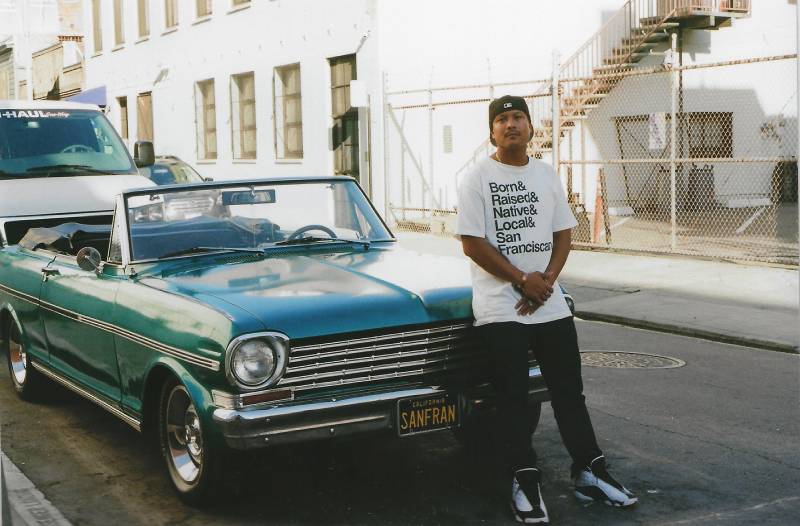As the COVID-19 pandemic ravaged the health of individuals and communities around the world, Harvey Lozada focused on the stories coming from the San Francisco neighborhood south of Market Street, the SOMA District.
Through the film “It Takes The Hood to Save The Hood,” Lozada shows how community organizations shifted their focus from being community resources, to being first responders.
The film shows local organizations coming together to run a grassroots food bank. He got insight from Carla Laurel of West Bay, Aureen Almario of Bindlestiff Studio, and Rudy Corpuz Jr. and Everett Butler (aka Boogie) of United Playaz, an organization whose slogan is used for the title of the film.
Through Lozada’s Instagram account, WhySF, he also showcases the images he’s gathered of community members. These photos are a part of the “94103” photo series that highlights the people behind the mutual aid efforts in SOMA.
This week on the podcast, Harvey Lozada takes us to SOMA to introduce us to the heroes and sheroes who save the hood.
Below are lightly edited excerpts of my conversation with Harvey Lozada.
Pen: In your film, we hear a kaleidoscope of voices – from social service workers to culture workers – who talk to us about what SOMA means to them. People like Rudy Corpuz Jr. from United Playaz…. I got a message of resilience, is that the narrative that you are trying to push for?
Harvey: Yeah. Like the title, “It takes the Hood to Save the Hood.” That’s exactly what happened. When the pandemic hit, when California said we was finna be in lockdown, these brave sheroes and heroes, they did not pause.
Harvey: We lost a lot during a pandemic, but what I hope is that people saw that when folks came together, we can accomplish a lot. The real message is that, we can take care of ourselves, like we got us. If we waited for the government to help us out. Where would we be?
Pen: You’re deep into arts and culture, man. And you also have a background in social work. How did the two intertwine?
Harvey: I got to say, I’m privileged enough that they do, it’s not something that’s completely left field… I work with young people who touched down with the justice system and me being a people’s person, I’m able to really get people to where they can tell their truths.
Pen: Earlier this year you had a screening of a rough cut of the film at District 6, how did people respond?
Harvey: After [the film], I got on a mic and I asked folks, ‘So what do you think of the film? because it’s a rough cut, I want your honest feedback’ … And it was well received, I was humbled that folks really loved it. The feedback that folks gave me was very helpful [too]. There’s parts of the film in Tagalog, and for a lot of folks, they don’t speak Tagalog. I intentionally didn’t put subtitles because I wanted folks to kind of see what they got to go through to try to get services. These are folks that English is a second language to them. I know for bigger audiences, we got to put the subtitles so folks can understand what these folks are talking about. So they can get the message. I take that feedback and I’m applying all of it.
Harvey: I’m a child of immigrants. My parents, English is their second language. And for me, the son who they know as a social worker, they know I take pictures, but they didn’t know I was a filmmaker. And so, you should have seen them, they were smiling ear to ear. The DJ was playing music. My mom was dancing. Pops couldn’t put his phone down. He was on Facebook live so that my relatives in the Philippines could watch, you know what I mean? It was beautiful, it was a beautiful day.

Rightnowish is an arts and culture podcast produced at KQED. Listen to it wherever you get your podcasts or click the play button at the top of this page and subscribe to the show on NPR One, Spotify, Apple Podcasts, TuneIn, Stitcher or wherever you get your podcasts.


